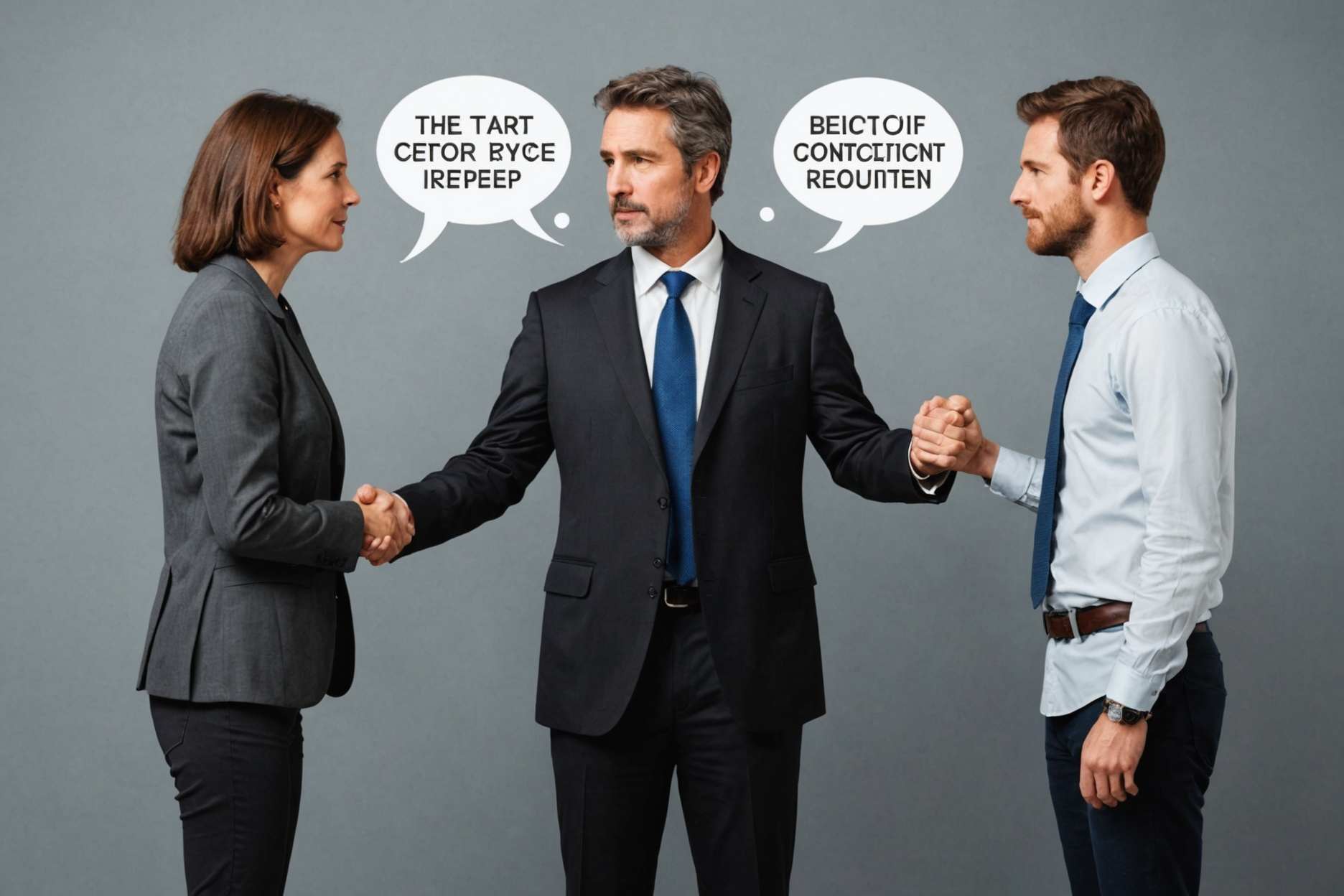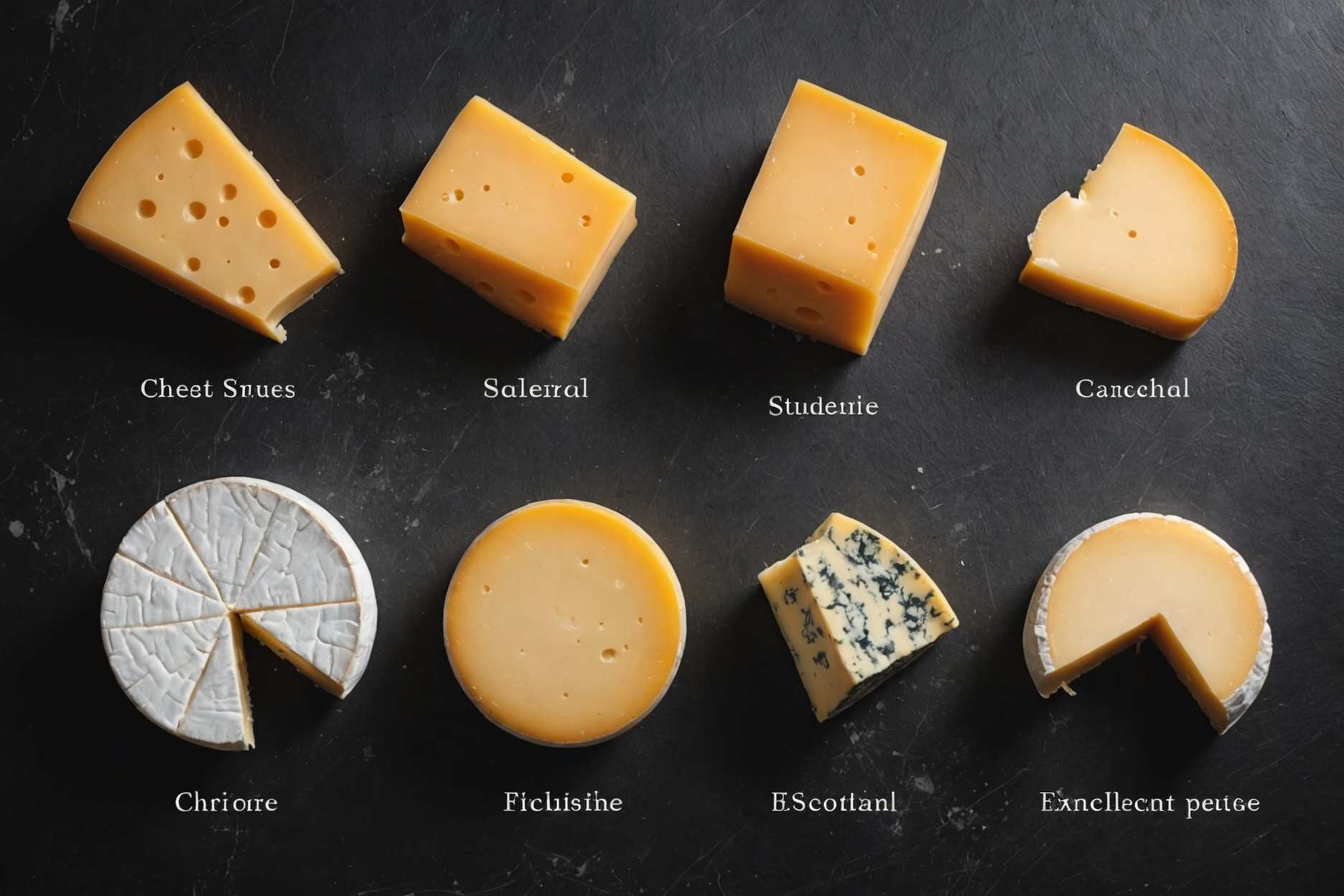The Specialty of Compromise: Examples from Reality

Struggle is an intrinsic part of human collaborations, happening in private connections, working environments, and networks. While struggle is a characteristic event, how we handle and resolve it essentially influences the nature of our connections and by and large prosperity. This article digs into individual tales and bits of knowledge from people who have created ability in powerful compromise.
**Undivided attention and Empathy**
A critical illustration in compromise is the meaning of undivided attention and sympathy. Compromise expert Sarah relates a striking encounter from her vocation: \I once intervened a debate between two collaborators who had been in conflict for quite a long time. Giving every individual the opportunity to talk and be truly heard was groundbreaking. They uncovered shared concerns and fears that lay underneath the surface. By understanding each other's perspectives, they found shared view and a way ahead.\ Sarah's story outlines the need of paying attention to grasp instead of basically answering.
**Looking for Normal Ground**
James encountered a debate with his neighbor over property limits. Rather than seeking after legitimate activity, they settled on an open exchange. \We both tried to arrive at a serene goal,\ James reflects. \We looked for shared view, talked about our interests in regards to property lines, and, surprisingly, thought about creative arrangements. At last, we accomplished a trade off that fulfilled the two players.\ James' experience highlights that viable compromise frequently requires a guarantee to distinguishing arrangements that benefit all interested parties.
**Making a Stride Back**
During a family assembling, a conflict heightened between cousins Alex and Emily with respect to an occasion's preparation. Feelings ran high, prompting horrible trades. After some healthy separation, Alex and Emily perceived the benefit of venturing back during extraordinary minutes. They later reconvened to explain their sentiments and recognized that both had acted imprudently out of disappointment. This experience instructed them that permitting time for reflection can stay away from pointless heightening and encourage more useful discussions.
**The Force of Apology**
On occasion, a direct statement of regret can fundamentally ease compromise. Sarah's collaboration with her companion Clara epitomizes this: \Clara and I had a run in because of a misconception,\ Sarah reviews. \I connected and truly apologized for any accidental hurt I caused. This opened the pathway for discussion, permitting us to eliminate any confusion and reestablish our companionship.\ Remembering one's mistakes and offering a genuine expression of remorse can work with compromise.
**Overseeing Working environment Conflict**
Powerful compromise is similarly significant in proficient settings. Mark, a chief at a tech organization, experienced a circumstance where two colleagues' varying work styles were upsetting cooperation. He coordinated a group building studio zeroed in on correspondence and compromise. Through directed conversations and group exercises, the two individuals figured out how to esteem each other's assets and change their work styles to supplement each other. Imprint's experience delineates the significance of proactively addressing clashes to develop a strong workplace.
**Building Extensions, Not Walls**
Compromise isn't about win or rout; it is tied in with encouraging extensions of understanding and coordinated effort. This interaction involves undivided attention, compassion, looking for shared belief, venturing back while essential, expanding expressions of remorse, and proactively tending to clashes across different life spaces.
All in all, contention is a characteristic peculiarity inside human connections and doesn't need to bring about enduring harm. These genuine records of compromise advise us that by moving toward clashes with an open heart, combined with a promise to understanding and feeling for other people, we can change disunity into valuable open doors for development, association, and more grounded connections.
**Undivided attention and Empathy**
A critical illustration in compromise is the meaning of undivided attention and sympathy. Compromise expert Sarah relates a striking encounter from her vocation: \I once intervened a debate between two collaborators who had been in conflict for quite a long time. Giving every individual the opportunity to talk and be truly heard was groundbreaking. They uncovered shared concerns and fears that lay underneath the surface. By understanding each other's perspectives, they found shared view and a way ahead.\ Sarah's story outlines the need of paying attention to grasp instead of basically answering.
**Looking for Normal Ground**
James encountered a debate with his neighbor over property limits. Rather than seeking after legitimate activity, they settled on an open exchange. \We both tried to arrive at a serene goal,\ James reflects. \We looked for shared view, talked about our interests in regards to property lines, and, surprisingly, thought about creative arrangements. At last, we accomplished a trade off that fulfilled the two players.\ James' experience highlights that viable compromise frequently requires a guarantee to distinguishing arrangements that benefit all interested parties.
**Making a Stride Back**
During a family assembling, a conflict heightened between cousins Alex and Emily with respect to an occasion's preparation. Feelings ran high, prompting horrible trades. After some healthy separation, Alex and Emily perceived the benefit of venturing back during extraordinary minutes. They later reconvened to explain their sentiments and recognized that both had acted imprudently out of disappointment. This experience instructed them that permitting time for reflection can stay away from pointless heightening and encourage more useful discussions.
**The Force of Apology**
On occasion, a direct statement of regret can fundamentally ease compromise. Sarah's collaboration with her companion Clara epitomizes this: \Clara and I had a run in because of a misconception,\ Sarah reviews. \I connected and truly apologized for any accidental hurt I caused. This opened the pathway for discussion, permitting us to eliminate any confusion and reestablish our companionship.\ Remembering one's mistakes and offering a genuine expression of remorse can work with compromise.
**Overseeing Working environment Conflict**
Powerful compromise is similarly significant in proficient settings. Mark, a chief at a tech organization, experienced a circumstance where two colleagues' varying work styles were upsetting cooperation. He coordinated a group building studio zeroed in on correspondence and compromise. Through directed conversations and group exercises, the two individuals figured out how to esteem each other's assets and change their work styles to supplement each other. Imprint's experience delineates the significance of proactively addressing clashes to develop a strong workplace.
**Building Extensions, Not Walls**
Compromise isn't about win or rout; it is tied in with encouraging extensions of understanding and coordinated effort. This interaction involves undivided attention, compassion, looking for shared belief, venturing back while essential, expanding expressions of remorse, and proactively tending to clashes across different life spaces.
All in all, contention is a characteristic peculiarity inside human connections and doesn't need to bring about enduring harm. These genuine records of compromise advise us that by moving toward clashes with an open heart, combined with a promise to understanding and feeling for other people, we can change disunity into valuable open doors for development, association, and more grounded connections.
Share this article
 Tire Brands for Senior Drivers: Guaranteeing Security and Solace
Tire Brands for Senior Drivers: Guaranteeing Security and Solace Which Startup's Innovation Could Reform Medical care?
Which Startup's Innovation Could Reform Medical care? Instructions to Guarantee Kids Foster Solid Dental Propensities
Instructions to Guarantee Kids Foster Solid Dental Propensities Is Chinese food truly flavorful?
Is Chinese food truly flavorful? Pedal Power: Divulging Well known Bike Brands for Each Cyclist
Pedal Power: Divulging Well known Bike Brands for Each Cyclist A definitive Cruiser Standoff: Decision in favor of Your #1 Ride
A definitive Cruiser Standoff: Decision in favor of Your #1 Ride Dominating the Remote Work Way of life: Individual Systems
Dominating the Remote Work Way of life: Individual Systems Manual for 6 famous sorts of cheddar
Manual for 6 famous sorts of cheddar Finding Your Motivation: Moves toward a Satisfying Life
Finding Your Motivation: Moves toward a Satisfying Life













